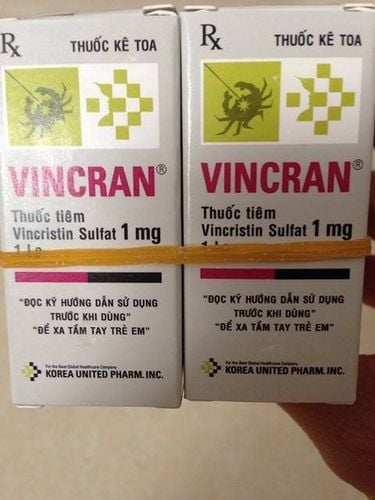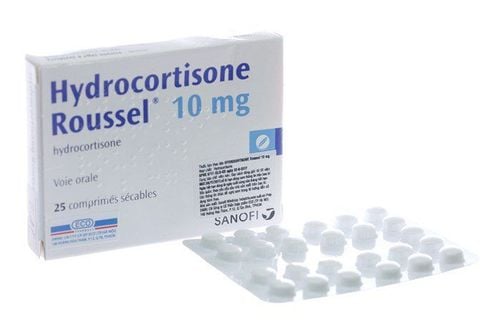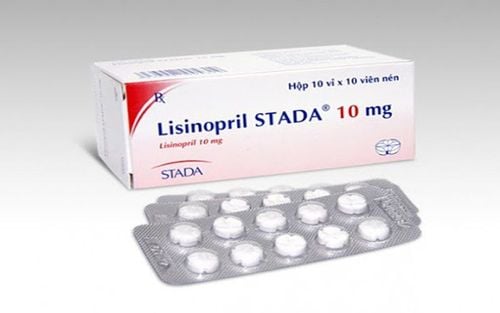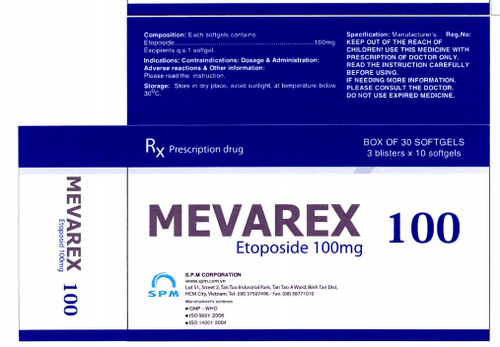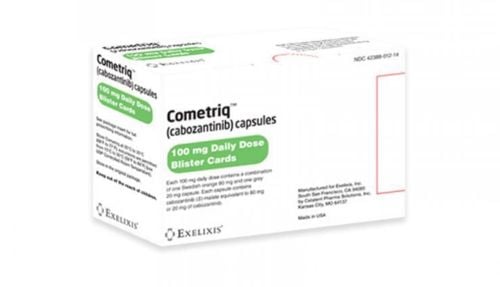This is an automatically translated article.
Cancer in general and blood cancer in particular cause very serious deterioration of the patient's health. However, with the development of modern medicine, patients have many different drug options to treat this disease. Including the drug Gazyva with the active ingredient Obinutuzumab. So what effect does Gazyva have?
1. What does Gazyva do?
What does Gazyva do? Gazyva is indicated for the treatment of certain types of blood cancers (such as chronic lymphocytic leukemia, follicular lymphoma). Obinutuzumab is the main active ingredient of Gazyva, which belongs to a class of monoclonal antibody drugs that work by stopping the growth of cancer cells.Gazyva can cause serious (possibly fatal) liver disease in people who have ever had or have had hepatitis B. Before starting treatment with Gazyva, the doctor should order a test to determine if the patient has hepatitis B. In addition, the doctor may order some tests or take measures to monitor the patient during treatment and for several months after the last dose of the drug. Contact your doctor promptly for any symptoms of liver damage, including: dark urine, persistent nausea/vomiting/loss of appetite, stomach/abdominal pain, yellowing eyes/skin.
Obinutuzumab increases your risk of a brain infection called progressive multifocal encephalopathy-PML (a rare but very serious and sometimes fatal disease). Immediately contact a medical facility when there are unusual signs such as confusion, dizziness, loss of balance, difficulty speaking, staggering, vision changes.
2. How to use Gazyva
Gazyva is used intravenously, by medical staff as prescribed by the treating doctor. Your doctor may prescribe Gazyva to be used on a regular basis (eg, by injecting it on certain days each month). The dose of Gazyva depends on the patient's medical condition and response to treatment.Obinutuzumab can cause serious related reactions during or up to 24 hours after the injection. These reactions occur more frequently with the first treatments (first and second). The doctor will monitor the patient closely and increase the dose slowly to reduce the risk of these serious side effects. In addition, your doctor may prescribe other medications before each treatment, such as acetaminophen, antihistamines (such as diphenhydramine), and corticosteroids (such as methylprednisolone) to prevent this problem. If the patient has a reaction, treatment may be temporarily stopped. Tell your doctor or nurse promptly if any of these side effects occur such as dizziness, fainting, fast heartbeat, chest pain, trouble breathing, wheezing, throat itching/swelling, nausea, vomiting , diarrhea, flushing, headache, fever or chills.
If you are taking medications for high blood pressure, ask your doctor first whether you should change the way you use your antihypertensive drugs immediately before and after taking Gazyva. Some people may experience reactions (such as dizziness/fainting) from taking their blood pressure medication too close to the time of their Gazyva injection.
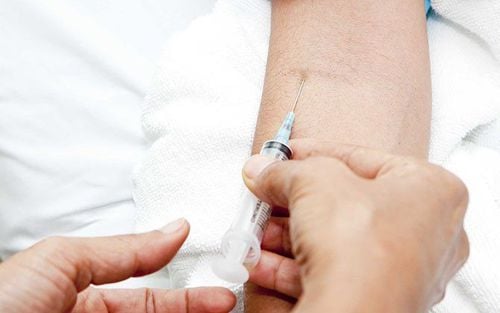
Gazyva được tiêm theo đường tĩnh mạch
3. Side effects of the drug Gazyva
You may have a cough or joint/muscle pain, if these persist or worsen, tell your doctor or pharmacist immediately. Some cases of using Gazyva can experience serious side effects. Gazyva can impair bone marrow function and lead to a decrease in the number of blood cells such as red blood cells, white blood cells, and platelets. This effect can cause anemia, a decrease in the body's ability to fight infections, or easy bruising/bleeding. Some unusual symptoms related to this side effect should be taken care of and reported to the doctor immediately:Unusual fatigue; pale skin; signs of infection (eg, persistent sore throat, fever, chills); Easy bruising or bleeding on the skin. Obinutuzumab sometimes causes side effects due to the rapid destruction of cancer cells (also called tumor lysis syndrome). To reduce this risk, the doctor may prescribe an additional medication and ask the patient to drink plenty of fluids. Some symptoms of this side effect: low back pain/lower back pain, signs of kidney problems (such as painful urination, pink/bloody urine, change in the amount of urine), cramps or muscle weakness.
A very serious allergic reaction to Gazyva is very rare. However, get medical help right away at any signs of a serious drug allergy: rash, itching/swelling (face/tongue/throat), dizziness, trouble breathing.
4. Some important notes when using Gazyva
Before using Gazyva, the patient must be sure that he is not allergic to obinutuzumab. At the same time, some other allergic conditions should also be noted. Before using Gazyva, please tell your doctor or pharmacist your medical history, especially of:
Liver disease (such as hepatitis B); Existing infections; Heart disease; Kidney disease; Lung disease. Obinutuzumab may make you more susceptible to infections or worsen any existing infections, so wash your hands thoroughly to prevent the spread. Avoid contact with people who have infectious diseases that can be spread to others (such as chickenpox, measles, flu).
Do not vaccinate without your doctor's consent during your treatment with Gazyva. Also, avoid contact with people who have recently received a live virulent vaccine (such as the nasal flu vaccine).
Gazyva can make the patient dizzy, so do not use other vertigo-inducing substances such as alcohol or marijuana, drive, use machines, or do anything that requires alertness until you are alert. ensure the safety of the patient.
Tell the doctor if the patient is pregnant or planning to become pregnant while taking gazyva. Patients should not become pregnant while using Gazyva because Obinutuzumab can harm an unborn baby. Consult and use reliable methods of contraception during use and for at least 6 months after the last dose. Also, it is not known whether Gazyva passes into breast milk, so consult your doctor before breast-feeding.

Bệnh nhân mắc bệnh thận nên thận trọng khi dùng thuốc Gazyva
5. Gazyva drug interactions
Drug interactions can change how gazyva works or increase the risk of serious side effects. Some products that may interact with Gazyva include: Medicines that weaken the immune system and increase the risk of infection (such as natalizumab, rituximab).
Laboratory tests such as kidney function, complete blood count... should be done during the use of Gazyva. It is very important that the patient needs to receive Gazyva injections on schedule. If you miss a dose, ask your doctor or pharmacist immediately for a new dosing schedule.
Gazyva is used intravenously, by medical staff as prescribed by the treating doctor. Therefore, patients need to strictly follow the instructions of the doctor to ensure the best results.
Please dial HOTLINE for more information or register for an appointment HERE. Download MyVinmec app to make appointments faster and to manage your bookings easily.
Reference source: webmd.com




